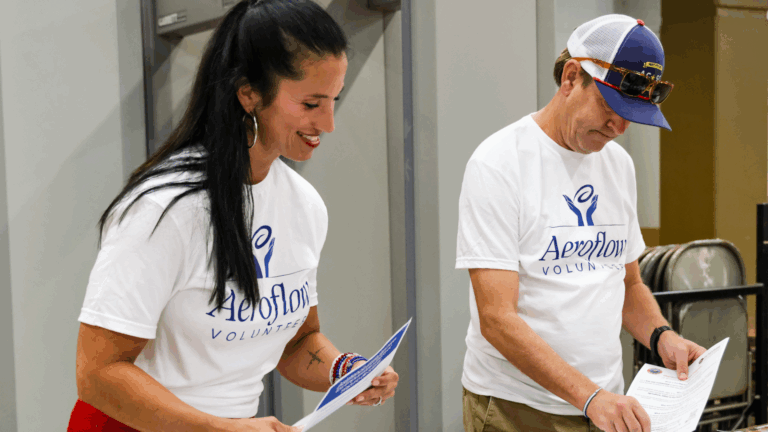Written by Lauren Bennett, COO of Aeroflow Health
One of the reasons I was first drawn to Aeroflow and that I have been a part of the Aeroflow Health family for so long is our commitment to patient accessibility.
Our interactions with the healthcare system are very personal. We inherit some attributes and others are a product of our environment. Some may be planned for, like pregnancy or elective surgery and others are accidental, like falling and breaking a hip. Insurance companies cover some remedies and not others.
We can get frustrated, scared, elated, or relieved – all while dealing with the same condition. Working in healthcare – especially for a company like Aeroflow Health that prides itself on being a disruptor and the most innovative DME business around – has given me a greater understanding of the system. Friends and family members often seek guidance, an explanation, or my opinion as to why parts of our system are structured the way they are.
I am so grateful that I have this understanding, because the healthcare system is confusing, bureaucratic, and contradictory. I recognize that many health policies are created by health plans in an attempt to control utilization, manage cost, and of course, reduce fraud, waste, and abuse within the system. Despite these good intentions, such policies can sometimes negatively impact the patients they are meant to serve. Both private and federal health plans can create confusion and uncertainty, often contradicting the care they aim to provide. Some of theses policies simply don’t make sense. They certainly are the antithesis of so much of what Aeroflow stands for as a company.
Take CPAP coverage. It begins with your wife, husband, partner, or roommate telling you that you snore. LOUDLY. You deny it until you one day realize that this may be a problem. Then you tell your doctor, who wants you to get a CPAP machine.
Great! Or so you think. First there is a sleep study. Then if the sleep study identifies you do have sleep apnea, your doctor will write a prescription for a CPAP machine. Like adjusting to new medications or eating habits, it may take you time to adjust to wearing a mask while sleeping, resulting in some nights where you are inconsistent in using your new device. If you dare drop below the deemed level of compliance, generally seventy percent – even by a single percent or one night’s sleep – your coverage can be dropped and you could be forced to pay market rate for the machine.
It sounds ludicrous, right? We know that sleep apnea causes a number of other diseases which could kill you, yet it is something that is hard to notice if you are the person with the condition (since others are usually pointing it out to you). From a coverage perspective, you have no incentive to wear the device if it is not covered anyway. You may even refuse it.
Things like this make no sense.
My friend recently told me a story that at his annual physical, his doctor asked if he wanted his Vitamin D tested. He replied, “of course,” to which his doctor responded, “you just need to know that if your insurance company denies this blood test, you will have to pay $300 for it.”
My friend declined the test.
This doesn’t make sense either. It actually flies in the face of everything we know about the importance of preventative medicine.
Using a CPAP machine even ten percent of the time is better than none at all and testing for a vitamin deficiency makes sense – especially given their importance.
While all of this is overwhelming, I am glad that I work for a company trying to lead by example and one which demonstrates to policymakers and regulators that a common sense and accessible approach to healthcare is one that everyone could benefit from.
There is a reason we go the extra mile – that we spend time counseling patients who are stressed and scared. There is so much they have to deal with, they need to know that we are their ally and fighter for a better system that puts preventative care first and that does not make finances a barrier to treatment.
We must do all we can to infuse every part of America’s health system with these values. It will mean healthier people, longer lives, and a greater chance at financial solvency for so many afflicted with illness.

Lauren Bennett, COO of Aeroflow Health
Lauren Bennett is Chief Operating Officer for Aeroflow Health, where she leads national operational performance and experience. Lauren joined Aeroflow Health in 2014 and has held a variety of leadership roles within the company in strategy, experience, innovation, data analytics and growth. In her current role, Lauren oversees more than 200 operations employees and leaders across multiple business areas at Aeroflow Health. Lauren's priority is improving the experience for patients, health plans, providers and employees. Previously, Lauren was Vice President of Aeroflow Sleep and Director of Sales Operations for Aeroflow Breastpumps. She is known for driving innovation and efficiency through implementing state of the art automation with a goal of delivering a seamless patient experience





